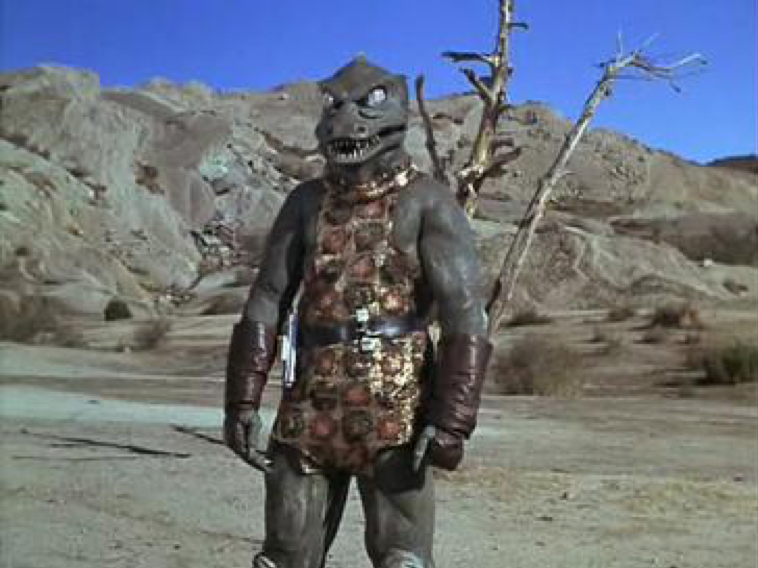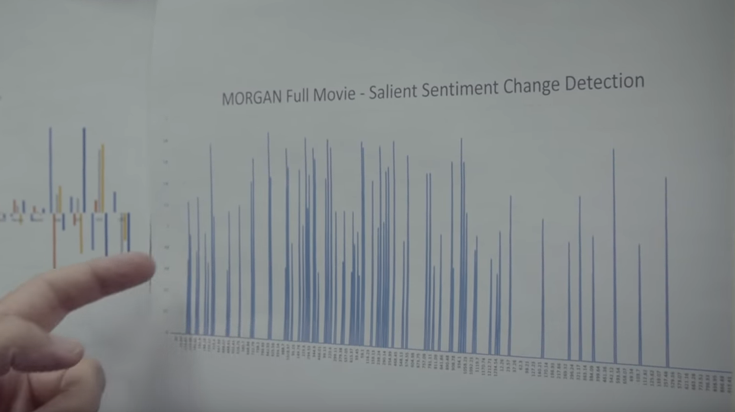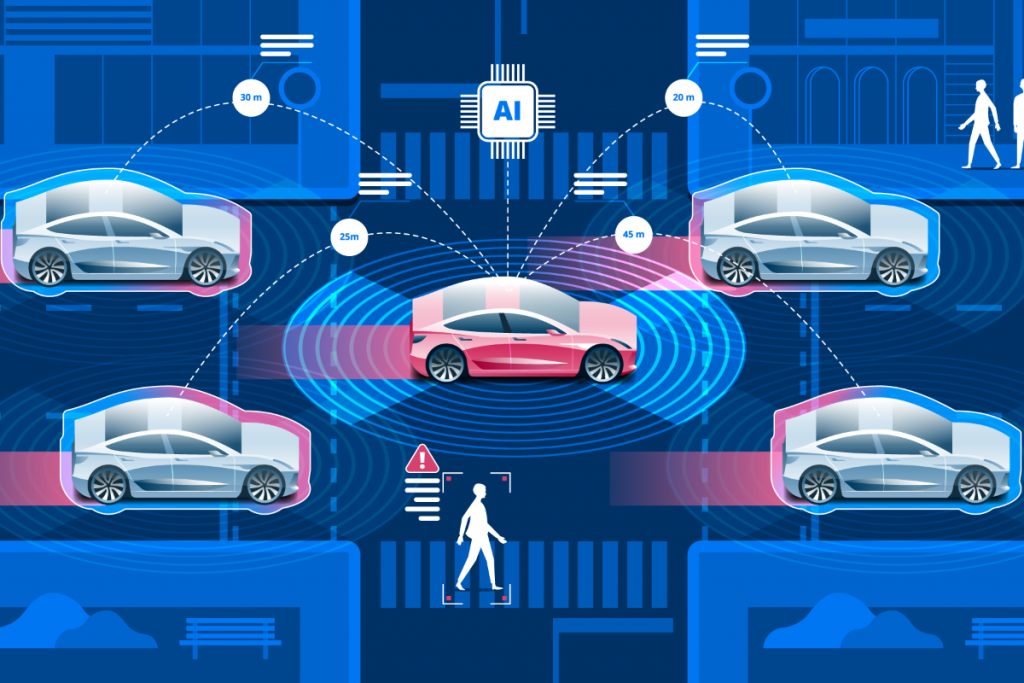WILL AI REALLY CHANGE THE WORLD?
Who remembers when IBM Watson cut its first movie trailer using artificial intelligence?
It was back in 2016 for the horror movie Morgan. They called it the first-ever “cognitive movie trailer”.
It’s worth watching as it’s a good trailer, and makes it look like a really scary film.
The AI was taught by watching 100 other trailers and segmenting each scene for audio and visual cues. On the workflow of creating the trailer Fox said : “From the moment our system “watched” the film Morgan for the first time, to the moment our filmmaker finished the final editing, the entire process took about 24 hours”. Normally to make a traditional trailer takes anywhere between 10 and 30 days to complete and involves a lot of humans and a lot of edits.
So, we can replace those humans with computers, right?
So, all trailers by all movie studios must be made with AI now right?
Not as far as I can see. I can’t find any references to other trailers made using AI.
One thing that probably didn’t help is that the movie flopped and apparently also sucked. (On Rotten Tomatoes it’s got a 30% audience score)
But regardless I see a lot of this kind of thinking. I talk to people who are scared that AI will replace them. I see MIT reporting that Self-Driving Cars Will Endanger Nearly Four Million Jobs
I see people saying AI is going to change the world.
AI AUTONOMOUS CARS
Let’s take a closer look at the Autonomous cars as it’s a big one. I have a £5 bet with my cousin that there will be self-driving cars in the UK by 2020. I work in technology and she works in teaching, so I felt confident. We all know it makes sense, they see and hear better than us, they learn from their mistakes quicker and then all the other cars instantly learn from those mistakes. Autonomous cars are focused purely on driving rather than on their Facebook updates while driving. The technology is pretty much there.
However according to Missy Cummings of Duke University Humans and Autonomy Laboratory, there is an awful lot of hype. Mainly coming from the CEOs of those companies in order to improve the stock price. There’s an interesting list of some of Elon Musks predictions here
On the Podcast 2038 Missy said there was no way due to safety issues and social technological issues that they would be available by 2038. I’ll lose my bet with my cousin by 18 years!
Here’s a few quotes from Missy:
“Uncertainty is the number one enemy of Machine Learning in any field that it’s in, so if you have a well-structured well modelled world they work great as long as there are no surprises but that’s a big if.”
“The vision systems of autonomous vehicles can’t respond to even slightly different views of the world than what they’ve been shown before.”
“The individual self-driving car, this technology is still very immature and the engineers in the companies know this”
So perhaps we have to hold back our visions of watching Netflix on our drive to work. There is however a lot of improvement to be had in augmenting the driving experience.
Toyota has a new “Guardian” mode that keeps the driver in control but only intervenes in the case of a possible accident. I particularly like this quote from the video: “The system works with you as a human… to make you superhuman”!
Audi has the “Traffic Jam Pilot” trialling in Germany, where you can go fully autonomous “hands off” when in a nose to tail traffic jam, at that point you don’t have to pay attention and it’s limited to 37 mph.
Missy Cummings also makes the point that there will also be growth in new employment opportunities for example “Super Dispatchers” for the robot car fleets and there will be the need for “Robot maintenance”.
AI IMPROVING SEARCH
What about the TV industry? One of my colleagues is a director in reality TV. He tells me he feels for the loggers.
On these shows they sometimes have a shooting ratio of 300:1. In all those hours of content how do they find that gem of engagement that will bring their viewers in? Metadata. They log everything. The loggers type and type and type and its boring work, and they don’t really enjoy it. They make errors and they are not in a fulfilled role. How could we use AI to help these guys?
Another area is in language checking. When companies buy a TV show, they have to check it. Language experts will sit and have to watch and listen to 1 minute at the beginning, middle and end of a show. They are paid well because it’s boring work and most language experts would rather do anything else. I mean are you ok just watching 3 minutes of the latest episode of Game of Thrones? AI can be taught to recognise different languages and check with a good degree of accuracy.
Al Jazeera have spent some time working with AI particularly in the search aspect. In an article on IBC365 Grant Totten said:
“Working to a 24 hour news cycle its editors and producers have limited time to share impactful stories with its audience, however since using AI to filter and find archive content the possibility to enrich its metadata across the content assets has enabled “effective business practices and the ability to move fast against the competition.”
So, they didn’t’ replace the journalists the AI is just helping them do their job better.
In the same article there is also a link to Gartners AI Maturity model that quotes:
Gartner’s hype cycle suggested that “AI is almost a definition of hype,” with the likelihood its applications “will not live up to expectations.”
I’ve been very impressed while working with Meta Liquid. They are an Italian start up that came out of a data science company. Rather than trying to be all things to all men they focus on small applications. For example, how can we improve the search capability in your edit?
Using Face Recognition, you can search your content for particular faces – “Hey show me all the shots featuring Simon Cowell”
Then add the ability for the AI to know the setting the shots are taken in “Hey show me all the shots of Simon Cowell in the studio”
Then add the ability for the AI to detect explicit content “Hey show me shots of Simon Cowell naked“ Ok let’s stop!
But you get the point. This won’t do the edit for you, but it will make it much faster, quickly creating bins of content ready for your craft edit. The data set has to be created and the models still have to be trained but after the training is done you should see an improvement in time.
AI GIVING PREDICTIONS IN ESPORTS
eSports has expanded 26% in the last year. There is a massive amount of data in video games. Every game is recorded, and the data is there to be analysed. I’ve been following the WEAVR project with interest. This is using AI to provide predictions about how an eSports event will unfold and also responding to viewer data to personalise peoples viewing experience.
“Weavr’s high-fidelity predictive data analytics gives esports fans accurate forecasts in real time, unique insights into player performance and integrates into the live viewing experience.”
In a short space of time they built the system and tested it recently with 27,000 fans at ESL One in Birmingham and apparently the fans were blown away. This is giving the audience a new way to view and interact with a live show enhanced by AI.
AI SLOW MOTION
How about using AI to give us super slow motion – this is a great.
What a perfect use. How can AI accurately estimate the frame between two frames if we had a high-speed camera? If we can tell the system, the movement of two pixels in two separate frames it can then estimate where each pixel would be if there were intermediate frames.
Watch the footage it looks great. (I’m half worried it’s going to put the Slow Mo Guys out of business, and I love that channel. Will people still clamour for “authentic” slow motion, seeing people jumping on a 6ft water balloon in slow motion?)
There are some great AI slow motion examples but my favourite is a new rendition of Bigfoot from the original 1967 Patterson Gimlin Film. You can actually see muscle and parts of the anatomy jiggle! If that’s a suit it’s a really good one when most suits in that year looked like this:

CONCLUSION
So, this brings us full circle back to the movie business where I started. In the 3 years since the Morgan trailer was produced, I would estimate very few humans have lost their job due to AI. But how can we help them to do their job better?
Now Fox are using AI to analyse trailers and see which have the best response and this feeds back to how they craft the next trailers, so It’s not doing the whole job its doing part of it. Once again, it’s not replacing humans for Fox, but it is augmenting them.
This is the best use I see for AI in the short term. How can you use some computing power rather than a whole house worth and still improve the efficiency of our lives? Can AI do some of the grunt work and let us get on with the more interesting, more creative and more thoughtful processes. Let’s start with that?
So, will AI change the world? Yes, it will but perhaps more slowly than we think.
Notes: I’m aware this is a broad subject and welcome comments. I’ve not covered some of the potentially negative aspects such as Deep Fakes and that’s perhaps worthy of a completely separate article! For example enjoy Jim Carrey in the Shining.
Sources:
Morgan Trailer – You can watch it here and a description of how it was made:
https://www.ibm.com/blogs/think/2016/08/cognitive-movie-trailer/
Verge Article about Fox use of AI.
https://www.theverge.com/2018/11/2/18055514/fox-google-ai-analyze-movie-trailer-predict-success-logan
Fox Trailer AI White Paper
https://arxiv.org/pdf/1810.08189.pdf
Toyota Guardian System
Toyota Guardian autonomous driving technology amplifies human car control
Super Slo Mo
https://towardsdatascience.com/super-slomo-fun-or-how-you-can-make-awesome-youtube-videos-with-ai-2d6459f6de14
https://people.cs.umass.edu/~hzjiang/projects/superslomo/
IBC Al Jazeera
https://www.ibc.org/manage/talking-about-an-ai-revolution/4350.article







No Responses to “Will AI really change the world?”